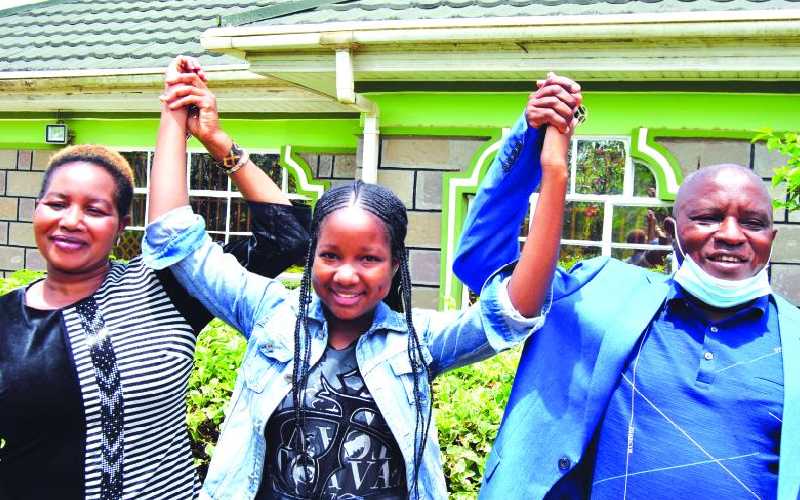
Sophy Mutheu Benson, 13 (centre) with her parents Lillian Benson (left) and Benson Nguthu at their home in Lenana in the outskirts of Narok celebrate her good performance. She aspires to be a gynaecologist so that she can assist pregnant women in arid areas to reduce maternity deaths. [Robert Kiplagat, Standard]
We are still reeling from the hubbub and razzmatazz that characterise the release of national examination results, in this case KCPE 2020. It has been all pomp and colour, song and dance, carrying ‘winners’ shoulder-high, fussing over their future career aspirations, which top high school they hope to join, the ‘secret’ to their ‘magic’, et cetera.